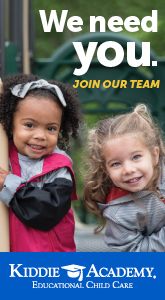February 19, 2025
Inspiration for Reimagining Our Work
My contention is that creativity now is as important in education as literacy, and we should treat it with the same status.
– Sir Ken Robinson
Ann Pelo and Margie Carter, after the publication of their best-selling book From Teaching to Thinking began inviting educators to write their innovative stories of how they are reimagining their work in early care and education.
Here are some inspiring words from a sampling of those stories, now published as books in the Reimagining Our Work (ROW) collection:
Authors Bridgette Towle and Angela Heape, writing in their lovely book, Cup: A Vibrant Vessel of Learning and Creativity, reflect on what they learned from a long-term investigation with children of a simple everyday material – plastic cups:
“Perhaps children’s ability to see the world as a relational whole, rather than as fragmented, leaves them open to the vital life force of everyday things, and more easily able to discern the extraordinary in the ordinary.”
When teacher and author Nadia Jaboneta was confronted with a troubling conversation between two children, she used it as an opportunity to explore social justice issues. Eventually, her explorations turned into her very helpful book, You Can’t Celebrate That! Navigating the Deep Waters of Social Justice Teaching. She explains: “I care deeply about addressing bias. I want children to know how valuable their differences are – to know that differences are what make us beautiful and unique humans.”
Bethica Quinn and Rosalina Rodriguez, in their beautiful bilingual book, Treasures in the Thicket, tell the story of how the children in their Spanish immersion preschool class chose to make a book about the animals of San Francisco…to be given as a gift to children in New Zealand during a study tour Bethica and Rosalina were planning. During the process, the thoughtful teachers discovered valuable insights: “At the heart of our work is a commitment to collaboration between children and adults. We call this process co-construction, and when we do it well, adults and children bring different and complementary strengths to the table to create something that neither adults nor children could have created alone.”
Nick Terrones, in A Can of Worms, his wonderful book about courageous work with toddlers, writes: “I am often asked why I’ve continued to work with toddlers for over a decade. My answer is simple: toddlers remind me that life is fun, filled with more wonder than certainty, and abundant with explorations.”
What would happen if teachers, who noticed that children talked a lot about “bad guys,” initiated a year-long research project, alongside children, to thoroughly investigate what it means to be a bad guy? This question is at the heart of Donna King’s important new book, Pursuing Bad Guys: Joining Children’s Quest for Clarity, Courage and Community. Donna writes:
“We will listen, yes, but not simply to document. We will listen in order to connect with the children’s thinking and emotion, and to align with their intention, in a way that is not intrusive, but informed.” She ponders whether “teacher’s involvement – when sensitive enough – can help children move from mere preoccupation with a concern to a sense of mastery and empowerment around that concern.”
Share with the hashtag #ExchangeEveryDay
Print Friendly












